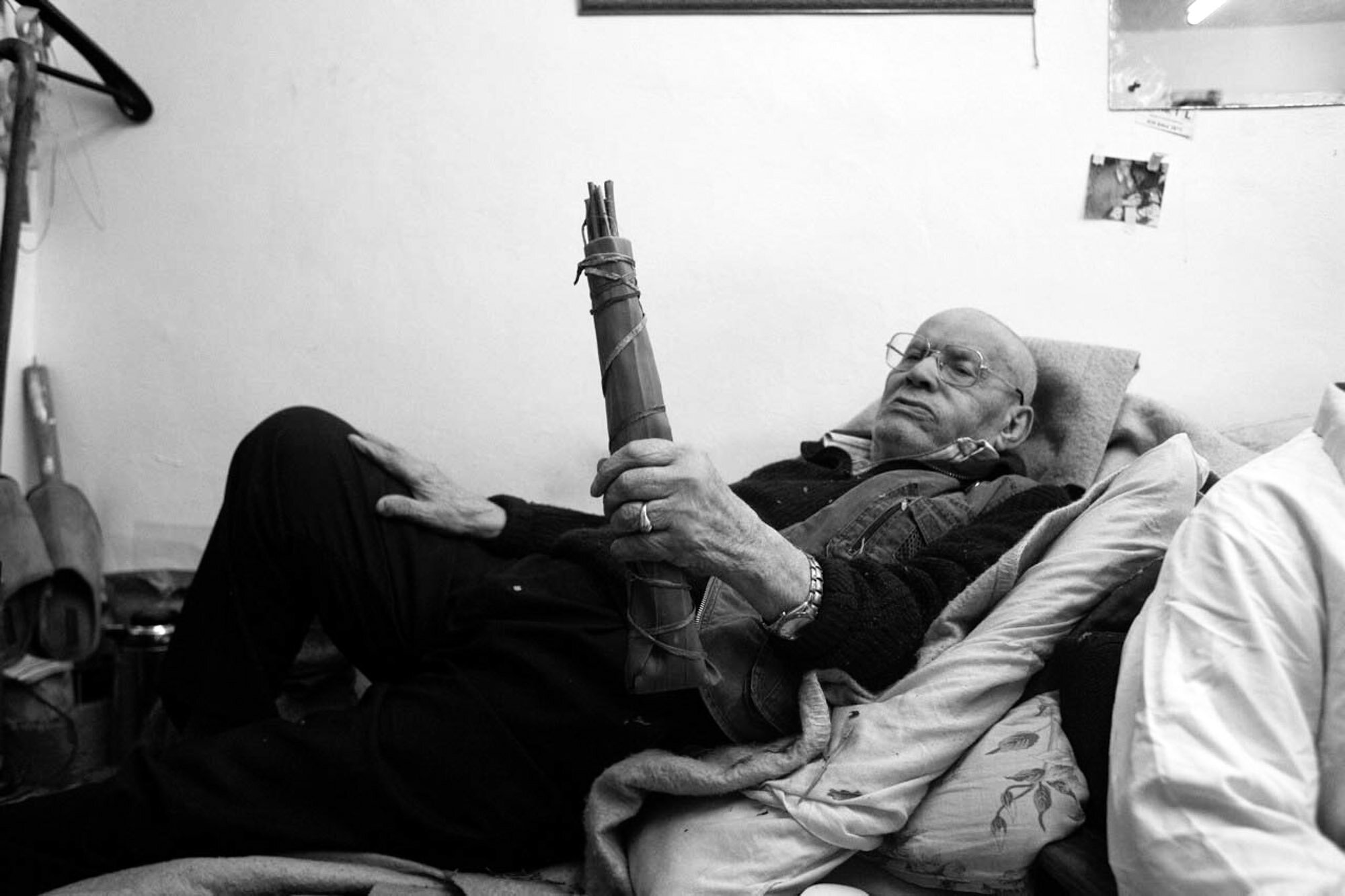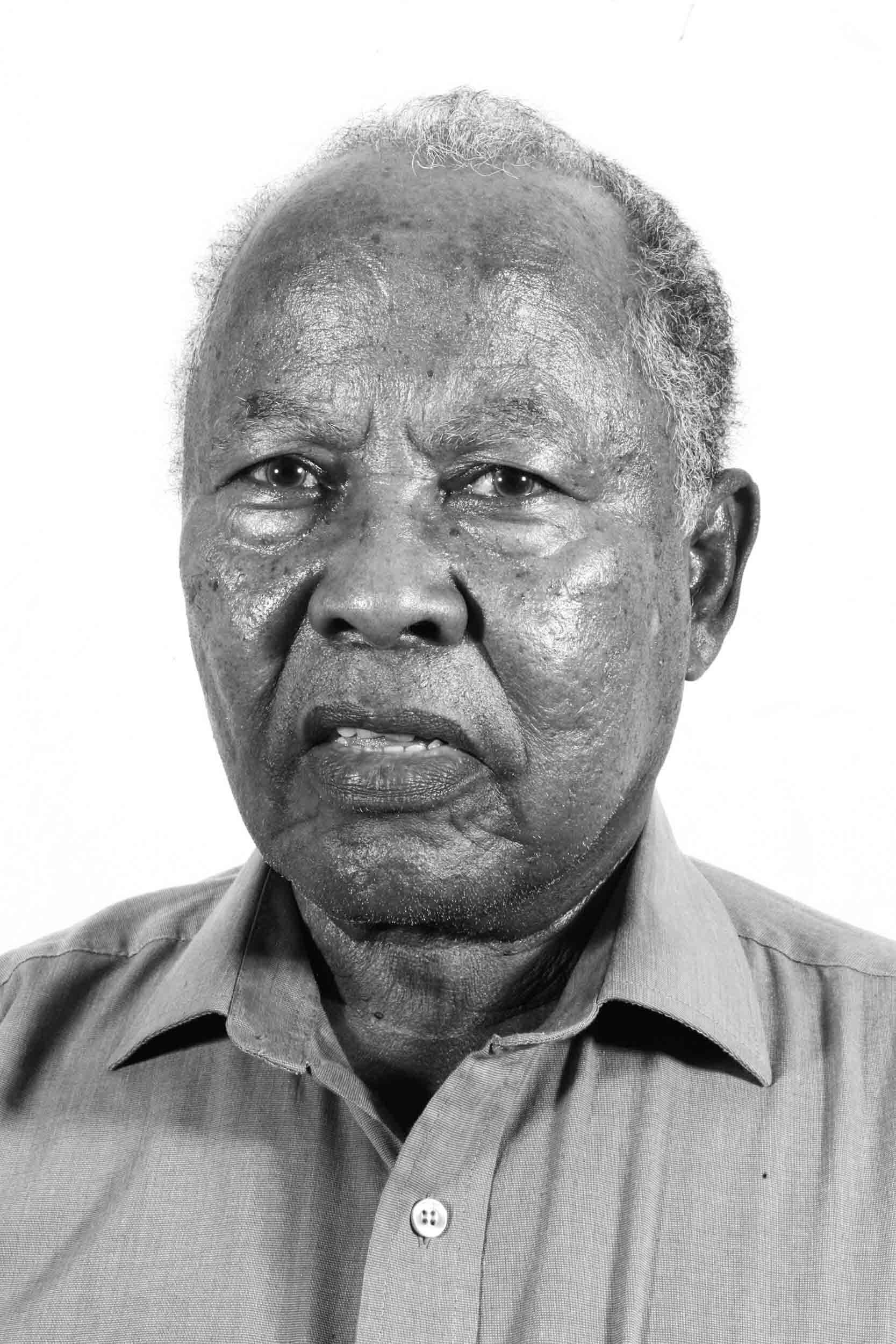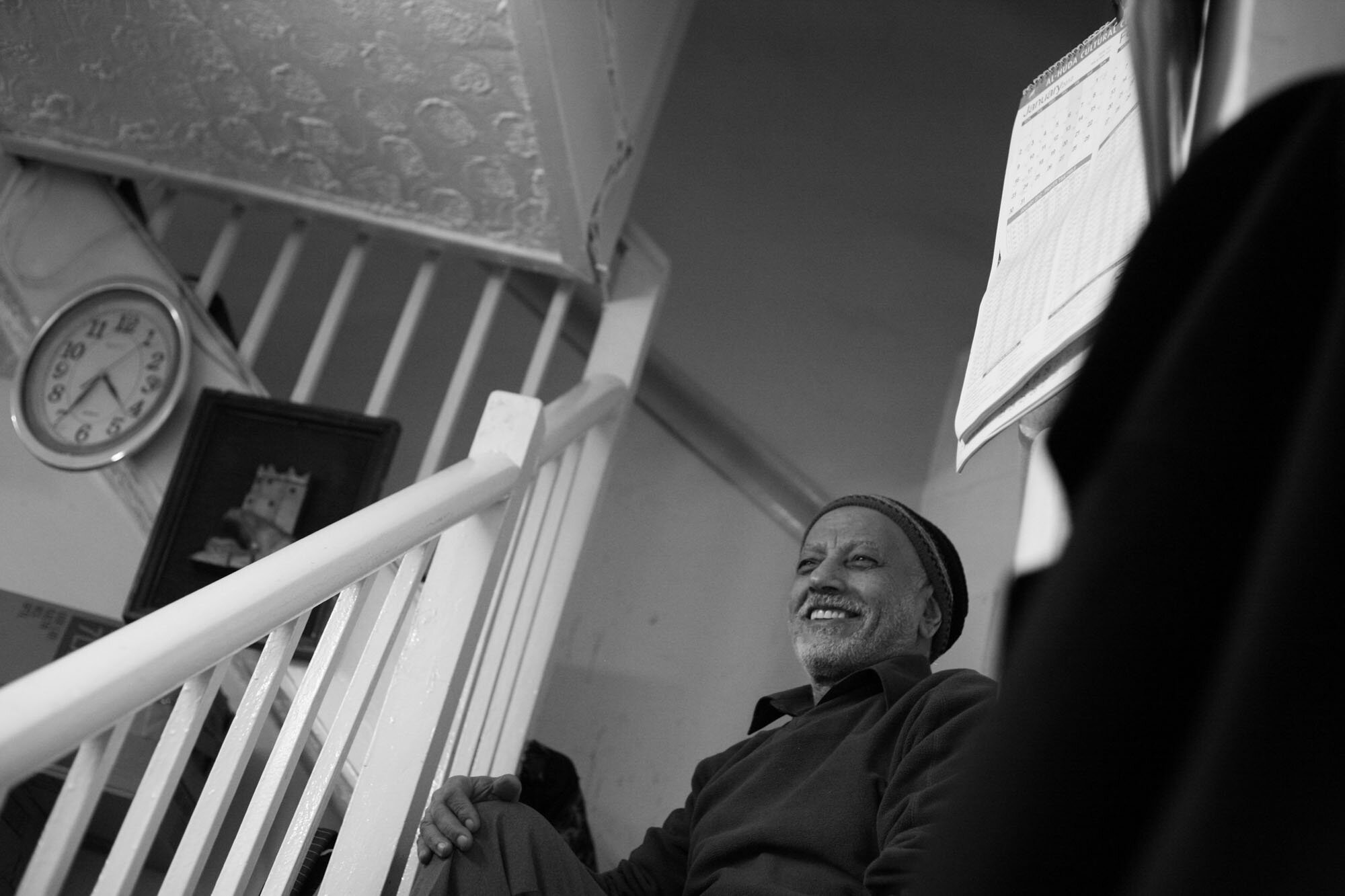
Ali’s place
Tower Hamlets, East London
Ali’s place
What follows are some informal notes taken from my notebook made during many visits to Ali and his ‘place’ during 2011.
‘ A young man is wearing a tie and a plastic name badge. He looks tired. 'Woah, my day never ends bro, it's just non stop, I've got three kids. I stop off here on the way home for an hour and have a chew of the qat with my friends. It's like a few pints, but I've noticed the pubs are dying and nobody socialises anymore' I often see him in his office clothes, working on his laptop, slouched deep in the couch at Ali's place. Ali's is a gathering place, a hang out or den for Ali's friends to come and chew qat but also for people who are lonely in the community or just fancy coming in for the banter. The building is a tall Victorian warehouse, it cost next to nothing I was told. In the 50's when Ali arrived in the UK this part of London, Tower Hamlets, was bustling. The area around Cable Street was home to pubs, nightclubs, brothels, drinking dens and cheap dockside cafes. Ali had a cafe that served the Yemeni and Somali sailors in the area and eventually he raised the money to buy 'Ali's Place'. Everyday a group of people, his friends, arrive in the afternoon. The TV flickers all day until about 8pm when the place closes up. Here you will find Yemenis, Somalis, Ethiopians, Iranians, Libyans, many are regulars, if they don't show one night then there is concern amongst the regulars. Everyone helps one another out. One day we went to visit one of the older Yemeni men in the hospital in Whitechapel. He'd gone into theatre. His wife was sat alone in a corridor on a chair by an oblong window that overlooked London. I later found out he'd had to have his leg taken off below the knee. They talked about him later that day at Ali's. He was happy they said..................
'This is the working mens club' smiles the elderly Ethiopian. I notice his clothes. He wears a pressed shirt and a camel overcoat, a sports jacket and polished shoes. He doesn't chew too much. Mostly he sits there quietly, but I know he's happy in the company of others 'I get a taxi here, lots of us do. It's too expensive, the taxi, but we like to come here anyway, we must'
Each character here has his own spot, his own seat. Like in a local pub. One man, an African with a very loud voice straight from the markets of Djibouti is paid a small amount to keep the place in order. He used to drive wagons across Africa. He still wears a truckers cap. Every now then he'll get up and walk around the room collecting the leaves left surplus from the qat sessions, the inedible stems, the roots of the plants. Stems that sat in the soil in Kenya just 48 hrs ago now lie in a bin bag in the street in London.\r\n\r\nEach man has his own story as to how he ended up in the East End. These stories are always downplayed in the way that they often are by men who have experienced what it means to live in the worst of situations: imprisoned in Bahrain, fought in civil wars in Yemen, hunted down by government troops in Ethiopia. Why would this be of interest?

'H' is a Somali Londoner, he wears a small Malcolm X goatee and immaculate sports clothes. Sharp, charismatic and open he tells story after story. He told me how he would have to 'silence people with his knowledge' including the teachers at his former school after he was continually talked down. He mentioned how as a teenager 'projects' would be set up to take kids from his neighbourhood out into the countryside, or to spend time at boarding schools as a way to ‘broaden the horizons of inner city kids’. One trip he described was a trip to Cornwall to a huge stately home. Walking the country lanes a black student was approached by an elderly lady from the village who asked if she could 'touch him'. All the guys in Ali's burst out laughing around the room. 'Yeah, she wanted to touch his face, see how he felt like, he's proper dark like this guy. To be honest we all didn't mind but one of the white girls went crazy on this old lady.'
The room could be divided into those who are religious and those who are not. There's not much in between. Ali always provided a prayer space in the basement of his place but it was never very busy. When he died everyone talked about the mosques he'd paid for back in Yemen. R is a humorous and cheeky British Yemeni. He wears denim and utilitarian clothing, he has a phone attached to his belt and always looks more awake than anyone else in the room. He's trim and sits quite high up on an old sprung office chair. He makes me think of trade union man, the kind I'm familiar with, he's involved in politics and wants to see change in Yemen. He’s organised, committed and active, reams of flyers always sticking out of briefcase. . He hands a flyer around the room 'Tribes, opposition, what you believe ,,,non of that matters now, nothing, none of it, we are all united in wanting this man from power' he says .
A few days later I arrive at Ali's. I meet a man called 'S'. 'I share a name with a king' he says. He wears worn sports clothes and a baseball cap sealed close to his black hair. He tells me about his life above the background drone of Al Jazeera on box. 'My life is one of shame and trying to hide the truth. I went to college to study medicine, but my parents couldn't afford the fees so after two years I had to leave. I couldn't go home and I couldn't tell them about my predicament either. It is the shame of being in that situation, of having failed. That it was too late' I know somehow that I'll never see him again. I notice he is chewing the stronger qat that comes from Kenya, it's especially strong and the roots look like some terrible tuberous nerve, pulled reluctantly from the earth. I visited Ali and he makes me welcome. I took him a photograph of himself and he loved it. He taped it to the wall with surgical tape, just below a framed old fashioned photograph of Mecca and an even older photograph of himself as a young man. Ali knows I don't chew qat. I did try once.
'D', a tall and kind natured Ethiopian man helps run the distribution of the qat in the room. There seems to be a complex list of IOU’s, tabs and some third category that involves forgetting then suddenly remembering and then looking for alibis around the room of men high on the leaves.

Suitcases and vinyl
In the basement at Ali's there is a dimly lit room, it has been a damp warehouse cellar in the past but now it doubles as a prayer space, complete with positioned prayer rugs and also a storage space for the belongings of those Yemeni sailors who 'stayed at Ali's once and then never came back for their stuff'. There is something sacred about the combination of the things in this room. At one end of the room there is a small tiled area with basic plumbing where those who decide to pray whilst visiting Ali's can perform 'al wudu', the spiritual washing of feet and hands. In the other half of the room surrounding the prayer space, are suitcases and trunks pilled high. High upto the ceiling. These are the sailors belongings. Ali's holds onto them just in case someone decided to return. Who and where are these people? Why does Ali keep everything? In the corner is a box of records, LP's. Their sleeves are pastel coloured and reminiscent of the 1950's and 60's. They live in a small leatherette suitcase. Down in the basement, a man was sat in a chair cradling a handful of 7" singles, just sat there silently looking at them. 'This is what we did before we had qat' he said. 'The sailors would bring these back with them to share with the others. We would sit around and listen and sing. One of these singers visited Ali in his cafe in the 1970's. He cooked him dinner.
Ali died in the winter of 2012. He was buried under a clear blue sky in the East End of London. The gravediggers had built a fire nearby and the smell filled the air. Nobody knew when he was born, but over the lunch that followed everyone came up with 'he was about 86'. Ali's life had come to an end. Ali came from a poor family in northern Yemen. He moved south to Aden, when the British had it and there he ran a business selling ice. Eventually he made it to the UK working as a sailor and then like many Yemenis, found work in the steel industry in Sheffield. He didn't like it and so moved back to London and opened a cafe in the Whitechapel/ Aldgate area of East London. His former cafe is now a solicitors. Many years ago he had to move and used the money he made to buy a run down building on Cable Street in the East End. About thirty years ago Ali turned his home into a place where people could go to chew qat, the plant stimulant preferred by Yemenis and Somalis. He started selling the plant, importing it from Kenya, Ethiopia and for some time from Israel. He turned the living room of his home into a sort of communal space for his friends and everyday they'd arrive to sit with him, chew, or just watch politics on TV and debate. Over time those who came to buy qat and chew with him became his friends. The business of qat ticked over but friendship and the need to talk together brought Ali and his friends under one roof. In a way these men became his family. These were the men who in the end carried his coffin and prayed over his grave





















